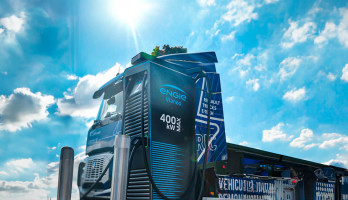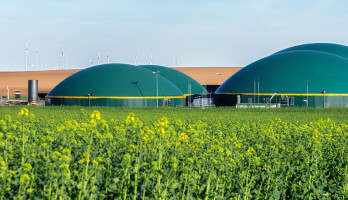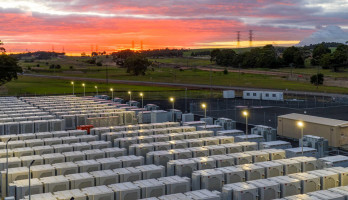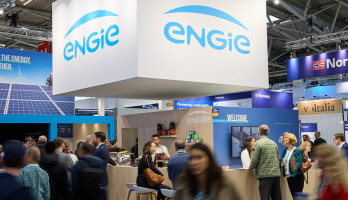
Internal Company CO2 Compensation – Key Component of the Zero Carbon Strategy
Reacting to climate change – step by step
Save, save, save – that is the approach many companies are taking to tackle their greenhouse gas inventory. The objective is to successfully reduce direct and indirect CO2 emissions over the next few years. The goal: zero carbon. However, this transformation cannot be achieved overnight. We must remain realistic, and accept that our economy is not yet capable of achieving climate neutrality. Companies cannot yet eliminate all emissions, or compensate for them with efficiency measures. Likewise, overarching economic processes are not yet mature enough to achieve this, nor are key technologies currently competitive and comprehensively available enough to do so. Therefore, unavoidable emissions will remain on the balance sheets for quite some time, and will be eliminated only on a step-by-step basis.
Why CO2 compensation makes sense for companies
CO2 compensation is an important tool in emission management. The goal is for companies to compensate for unavoidable greenhouse gas emissions by supporting climate-relevant environmental projects governed by internationally recognized standards. They do so by purchasing CO2 reduction certificates from relevant project sponsors and providers. The greenhouse gases produced are saved elsewhere through the projects.
CO2 compensation is often unjustly criticized
Of course, clearly CO2 compensation is not a long-term solution for companies to achieve climate neutrality. However, it makes sense as a transitional measure to also invest in climate protection on a voluntary basis. This approach can bridge the time, for instance, until low-emissions production systems are operational or until supply chains can be transformed. Through CO2 compensation, companies show that they are fully aware of their unavoidable greenhouse gas emissions, and are willing to contribute to healing the climate today. If greenhouse gas emissions cannot (yet) be avoided in some other way, CO2 compensation is always a good solution.
Supporting international CO2 compensation projects pays off
Corporate CO2 compensation does much more than just neutralize the greenhouse gas budget. Ultimately, such measures help protect the climate, and help advance the energy revolution above all in emerging markets and developing countries, as well as protect nature and improve peoples’ living conditions. From an economic standpoint, it actually makes the most sense to save greenhouse gas emissions in less technologically and socially developed countries. The positive impact of each euro invested there is usually much greater than in industrial nations like Germany.
CO2 compensation in practice
Many providers of CO2 reduction certificates advertise extensive portfolios of environmental projects from around the world to companies. Only projects certified in accordance with established standards are recommended. They provide transparency, and give companies the security of knowing they are supporting programs with real-world environmental benefits. These include, for instance, the Gold Standard (GS), the Clean Development Mechanism (CDM) or Verra.
However, the market for reduction certificates is currently undergoing a reorganization. Guidelines for offsetting compensation measures were adjusted during last year’s international climate conference under the Paris climate agreement. Projects in the renewable energy area, in particular, are no longer certified for the voluntary market as of 2021. Instead, emission budgets are credited to the countries in which the projects are carried out and to their national reduction targets.
This change was necessary to prevent these projects from being counted twice by the host country and companies in the future. The market is tightening. A smaller selection of affordable projects is available to companies. The project pipeline has narrowed, and the field is crowded with more players. These include nations as well as economic players, for instance within the CORSIA. Simple types of projects are used for offsetting on the national level, and high-quality and expensive projects are available.
CO2 compensation today
Companies should approach management of their voluntary CO2 compensation measures in a proactive manner. The focus now is on the UN SDGs, small-scale types of projects, and nature-based reduction projects. Reduction certificates for environmental projects that promote the establishment of natural CO2 reduction measures like forests or wetlands can usually be offset against strategic reduction targets like Science Based Targets (SBT). Reduction certificates resulting from projects with avoided emissions cannot be offset. On top of this, they are key levers in global decarbonization.
Do you have questions regarding CO2 compensation, or need professional support for your zero carbon strategy? We are sustainability experts, and are happy to support you in assembling an effective portfolio of certificates. Please contact us.
Our Expert










